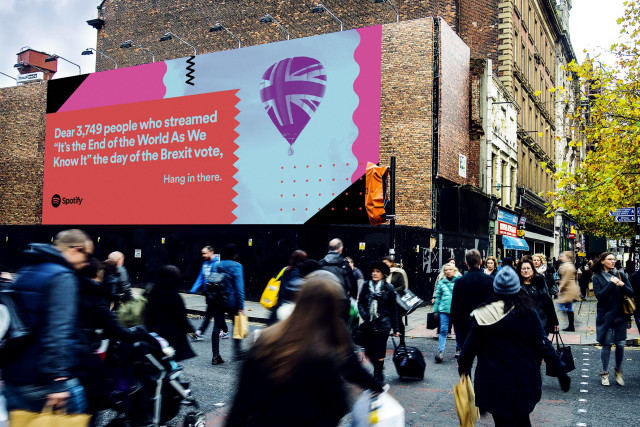The Uncanny Valley of Consent - when advertising gets creepy
Music streaming service Spotify has launched a new range of adverts which have gathered mixed reactions.

On the surface, they seem like the usual bland corporate attempts at chumming down - trying to cynically pass off advertising as friendship.

It's kinda funny, right?



Is that OK? It feels like it might not be OK.


There's no doubt that some people find these adverts unsettling.


The Uncanny Valley
As robots and computer generated imagery become more realistic, they hit an inflection point known as the "Uncanny Valley". Something which looks and behaves in an almost lifelike fashion is repulsive to many people.
... subtle flaws in appearance and movement can be more apparent and more eerie in very humanlike robots. MacDorman, K. F., & Ishiguro, H. (2006). The uncanny advantage of using androids in social and cognitive science research. Interaction Studies, 7(3), 297–337. doi:10.1075/is.7.3.03mac
You've probably noticed bad special-effects in a movie where people don't move quite as you expected them to, or been irritated by the phony intonation of a computer generated voice on the phone.
A good example of the uncanny valley is this almost-human-yet-really-creepy robot of the actor Scarlett Johansson.

It's is hard to identify what precisely makes the robot look so wrong. The pose is a little off, the skin tone is not quite right, the eyes are... I can't put my finger on it.
To experience the full terror, you can watch the video about the robot's construction. Warning you may find disturbing. Also it contains (robot) nudity which... I dunno... feels like it ought to be NSFW.
Feels Vs Reals
Let's take another quote from the original paper about the Uncanny Valley. Emphasis added:
... the eerie sensation associated with the uncanny valley may be peculiar to the violation of human-directed expectations MacDorman, K. F., & Ishiguro, H. (2006). The uncanny advantage of using androids in social and cognitive science research. Interaction Studies, 7(3), 297–337. doi:10.1075/is.7.3.03mac
That's the crux of the matter. Corporations aren't people. When they behave like people, it gets weird.
Holly Brockwell has written eloquently about the problems of Facebook's algorithm-driven "On This Day" feature. When Facebook says you might be interested in reliving old posts which bring you nothing but pain it feels like a personal attack.
It isn't, of course. It is a coldly mechanical procedure which is trying desperately to pass itself off as human. In doing so, it exposes just how far from human it is.
If your best friend sent you a birthday card making reference to a book you both loved as kids, that's adorable.
If Amazon strip-mines your chat history and suggests buying the same book, that's creepy.
Is Spotify being creepy?
Feelings are intrinsically valid. You can't tell me that watching a horror movie didn't scare me, or that listening to The Beatles doesn't make me happy.
Many people find these adverts creepy.
Let's assume that these are data-driven adverts based on real users (I suspect that they're purely creative).
Have people consented to having their data used in this way? Probably.
You did read the Terms & Conditions when you signed up, right?
You grant Spotify a non-exclusive, transferable, sub-licensable, royalty-free, perpetual, irrevocable, fully paid, worldwide licence to use and distribute any of your User Content in connection with the Service through any medium
(Edited for brevity.)
But legal doesn't mean morally right. And that is why people are having a visceral reaction. There's something innately inhuman about about a large, powerful company mocking its customers.
Imagine if you are the Londoner who featured in this advert. Do you find it funny? Upsetting?


Does it make you paranoid if you see that poster in your local tube station? Is everyone laughing at you? Are you OK?
Be seeing you.